
Hall of Fame is Proud to Announce The Class of 2025
The WVMHoF’s 10th induction ceremony was held on April 12. The event is now available to view on YouTube.
LIVING INDUCTEES
Jeff Stevens born 1959 Alum Creek (Lincoln County)
Anyone who lived in the Kanawha Valley during the ’80s will remember The Stevens Brothers Band. They were a fixture in the valley and it was obvious that the group was destined for success on a larger stage.
Jeff is a multi-platinum singer, songwriter and producer. His career officially started at age nine, when he and his brother Warren entered a talent contest and won first place. Eventually, the brothers and cousin Terry Dotson formed Jeff Stevens and the Bullets. The group signed to Atlantic Records and, in 1986, released Bolt Out of the Blue.
His songwriting took off in the mid-1980s, when he and Dotson co-wrote the singles “Atlanta Burned Again Last Night” and “Sweet Country Music” for the band Atlanta.
After the Bullets broke up in 1990, Jeff wrote a string of hits for artists including John Anderson, Blackhawk, Alabama (the No. 1 “Reckless”) and Tracy Byrd. George Strait scored No. 1 hits with a pair of Jeff’s songs and, in 2004, Tim McGraw had a No. 1 hit with his song “Back When.” For over a decade, Jeff has been co-writing hits and producing numerous releases for Luke Bryan.
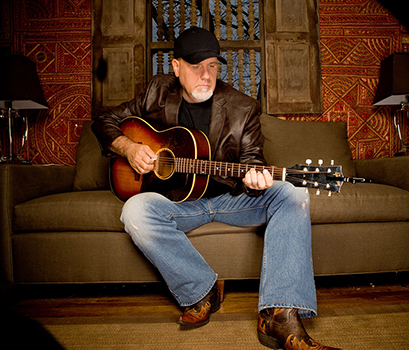
The Valentinos/The Womack Brothers
Friendly Womack Jr. born 1941 Maitland (McDowell County)
Curtis Womack (1942-2017) Charleston (Kanawha County)
Bobby Womack (1944-2014) Cleveland, OH
Harry Womack (1945-1974) Cleveland, OH
Cecil Womack (1947-2013) Cleveland, OH
The Womack family is one of West Virginia’s most important musical dynasties. Although Cleveland born Bobby Womack is the most famous — he was inducted into the Rock and Roll Hall of Fame in 2009 — the family hails from Northfork, deep in McDowell County.
Originally known as The Womack Brothers, The Valentinos were a Cleveland-based family R&B group that recorded from the late 1950s through the mid-1970s. All five brothers were songwriters.
They started out singing at their father — pastor Friendly Womack Sr.’s — church. They toured with The Staple Singers, and had to stand on boxes so they could reach the microphones. Sam Cooke first heard the group in 1956, when The Womacks opened for Cooke’s Soul Stirrers. He quickly signed them to his SAR label, dubbed them The Valentinos, and took them under his wing.
The group’s 1962 release, “Looking for a Love,” became a Billboard Top 10 R&B hit and sold more than 2 million copies. On the strength of that song, the group went on its first secular tour opening for James Brown.
A number of their R&B singles later became major hits for other artists including: “It’s All Over Now” (a Top 10 hit for The Rolling Stones), and “Looking for a Love” (a hit for The J Geils Band). Bobby had major solo releases and, as a guitarist, backed up many artists including Ray Charles and Aretha Franklin.
After the Valentinos disbanded, Cecil went on to be one-half of the successful R&B duo, Womack & Womack with his wife, Linda Cooke (Sam Cooke’s daughter); Bobby had a major career as a solo artist, recording more than 40 chart hits and numerous hit albums; Harry had a successful solo career; and Cecil’s songwriting career took off with hits charted by Teddy Pendergrass, The O’Jays and The Dramatics. Friendly Jr., the sole surviving brother, continues to record and release gospel songs.
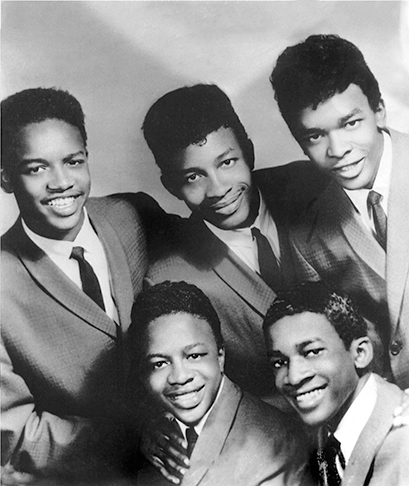
DECEASED INDUCTEES
Daniel Johnston (1961-2019) Born Sacramento, CA. Raised in Chester (Hancock County)
The short story is, Daniel Johnston was a singer, songwriter and artist who garnered a strong cult following among alt and indie rock artists and fans. But, as usual, the full story is much more complex.
Daniel Johnson was born in Sacramento, CA, but his formative years were spent in Chester, WV, Hancock County.
He attended Oak Glen High School in Hancock County and, in the late ’70s began recording songs on a boombox. Throughout his life, he spent extended periods in psychiatric institutions and was diagnosed with bipolar disorder which gave his music an innocent and childlike quality.
He later attended Kent State University in East Liverpool, OH, where he recorded his first releases, Songs of Pain and More Songs of Pain.
After moving to Austin he recorded cassettes of his music and passed them out to people on the street which attracted the attention of the local music press. His reputation grew when he was featured in a 1985 episode of the MTV program The Cutting Edge.
Soon, Johnston was the singer/songwriter of choice of the alternative and underground rock scene, and was championed by members of Nirvana, Tom Waits, Beck and Sonic Youth. None other than Kurt Cobain was frequently photographed wearing a T-shirt featuring Johnson’s artwork. In 1994, he signed to Atlantic Records and issued one LP.
His mystique continued to spread with the release of the documentary, The Devil and Daniel Johnston, which received the Director’s Award at the 2005 Sundance Film Festival. Through the next few years Johnston toured extensively worldwide and his artwork was shown in galleries in London, Liverpool, New York and California.
Johnston died in his home in Waller, Texas on September 11, 2019.
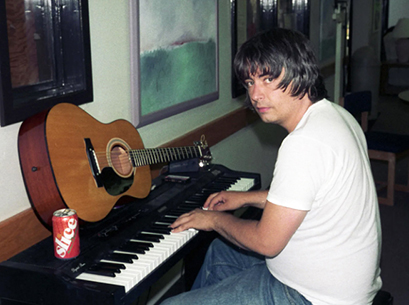
Cameron LaVelle Mullins (1928-2001) Charleston (Kanawha County)
Charleston native Cam Mullins was a multi-instrumentalist, arranger, composer, and conductor. In his teens, Mullins was in the Stonewall Jackson High School band.
Mullins’ arrangement clients spanned genres and generations, and included West Virginia Music Hall of Fame inductee Connie Smith, Johnny Cash, Ray Price, Elvis Presley, Willie Nelson, Jerry Lee Lewis, Joan Baez, Bobby Vinton, Al Hirt, Pete Fountain, Brenda Lee, Roy Orbison, Roger Miller, Roy Clark, Charlie Rich, Perry Como, Chet Atkins, Tex Ritter, Floyd Cramer, Boots Randolph, Ronnie Milsap, J.J. Cale, Tom T. Hall, Lynn Anderson, Burl Ives, the Statler Brothers, George Jones, Tammy Wynette, and Marie Osmond.
After high school, he moved to New York City where he cut his teeth in local clubs and got an invaluable education at after-hours clubs. Returning to Charleston in the late ’40s, he formed The Cam Lavelle Orchestra — often described as “Charleston’s Newest Sensation.” The group played at dances and functions at venues like The Casa Loma, and the Steak House Annex in Kanawha City.
In the mid-’50s, Mullins played trumpet and trombone in Woody Herman’s Thundering Herd after Herman heard him performing with guitarist Hank Garland and vibraphonist Gary Burton. Mullins’ first notable arranging projects included Ray Price’s 1970 million-selling LP For the Good Times. He also arranged and wrote the title track for Price’s No. 1 LP I Won’t Mention It Again, the Country Music Association’s “Album of the Year” in 1971. Mullins was named Billboard’s “Country Arranger of the Year” in 1972. He also composed for and conducted symphonies in Houston, Dallas, Nashville, and Oklahoma.
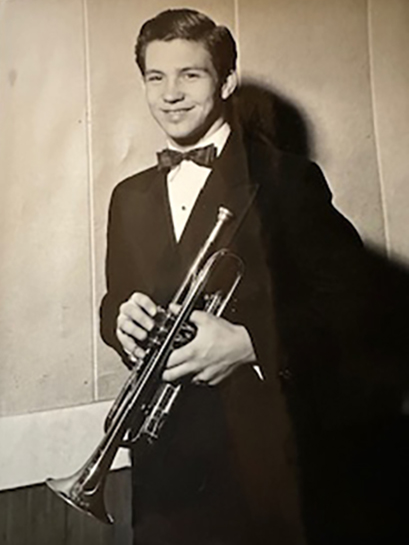
Celebrating Black History Month With The WVMHoF’s African American Inductees
Click on a photo to learn about their lives and their contributions to West Virginia Music.
WVMHoF Inaugural Inductee Billy Edd Wheeler Passes
Sadly, West Virginia has lost one of its favorite — and most unique — native sons. Billy Edd Wheeler passed on September 16, 2024 at his home in Swannonoa, North Carolina at the age of 91. He had been under hospice care for several months.
Born in Whitesville (Boone County) in 1932, Billy Edd was raised by his mother and grew up dirt poor in the coalfields. With a rare gift for story-telling, an excess of country smarts, and perseverance, Billy Edd was a true renaissance man. He was a multi-talented artist whose songs have been recorded by Elvis Presley, the Kingston Trio, Judy Collins, Neil Young, Kathy Mattea, and Johnny and June Carter Cash. Songs like “Jackson,” “Coal Tattoo,” and “The Reverend Mr. Black“ have become country-folk standards, and Kenny Rogers’s version of Wheeler’s “Coward of the County” was a No. 1 single and was later made into a movie. Not only did these performers make Billy Edd’s songs famous, his songs helped make the singers famous as well.
Billy Edd was also a successful author and playwright, and, defying all odds, attended Yale’s drama school as, what he called, their “token hillbilly.”
He was an inaugural member of the West Virginia Music Hall of Fame, and was inducted in 2007. In 2019, the WVMHoF released a tribute to him titled Billy Edd Wheeler: Courting the Muse.
I just saw Billy Edd a few years ago when he made his last trip home to attend a taping of Mountain Stage and visit old friends. After the show, he came over to The Empty Glass where he received a hero’s welcome. He stayed until around 12:30 a.m. — and made sure to down his beer before he left!
God bless Billy Edd.
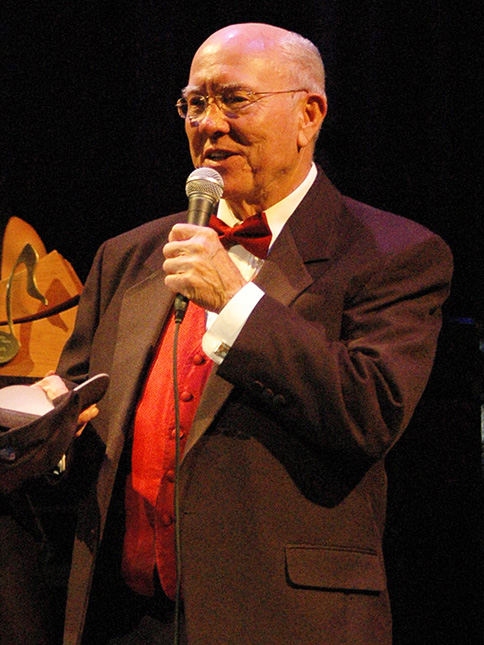
WV Music Hall of Fame bring Career Day to Greenbrier County
RealWV recently covered the West Virginia Music Hall of Fame Music Career Counseling Program’s appearance at Lewisburg’s Carnegie Hall. Read about it here.
The West Virginia Daily News also published an article about Career Day. Read it here.
Drummer Extraordinaire Butch Miles Passes
“Butch Miles was a man who realized his life dream – and then some. When we met, as students at West Virginia State College, his goal was to play drums with the Count Basie band. He worked hard and, when the opportunity presented itself, he was ready. And as they say, the rest is history. Butch went on to become one of the world’s greatest drummers, playing with many of the great legends in jazz. And, as he traveled the world, he never forgot his teacher here in Charleston, Frank Thompson, who constantly received cards and letters from him. Butch was a great musician, and a great friend to all who knew him. His passing is a great loss to the world of jazz.” – Jazz pianist Bob Thompson
“There are two driving principles in my drumming. The first came from my teacher Mr. Frank Thompson who told me, ‘Always let the band know where “1” is.’ The second came from the great Count Basie who said, ‘LISTEN’.” – Butch Miles
We are sad to share the news that 2011 West Virginia Music Hall of Fame inductee Charles “Butch” Miles passed away February 2, 2023.
While Butch’s career was bookeneded by stints with the world-renowned Count Basie Orchestra, the rest of his resume is no less impressive. He played and recorded with everyone from Sinatra, Brubeck and Ella Fitzgerald to Benny Goodman, Tony Bennett, Zubin Mehta and Itzhak Perlman.
Butch was born July 4, 1944, in Ironton, OH, while his mother, who lived in Hinton, WV (Summers County) was attending a family reunion in Russell, KY.
His family had moved to Charleston by the time he started school and at age nine, Butch had started playing drums. In high school, he played in local bands and studied with the great Charleston drummer Frank Thompson, who remained one of his most important mentors.
His “education” continued at after-hours jams at Charleston clubs like the Shallomar and Crazy Horse where out-of-town musicians gathered after their shows. Soon, Butch began playing with local dance bands, including Jules Micheaux’s group and the Monterreys. He majored in music at West Virginia State College and went on to join firebrand singer Iris Bell’s trio. That group played throughout the eastern U.S., finally settling in Ann Arbor, MI, where a two-week engagement at the Rubaiyat Supper Club turned into a seven-year residency.
From that point on, there was no stopping Butch Miles. He signed on with Mel Torme; then, thanks to a recommendation from none other than his idol Buddy Rich, he landed his dream job with The Count Basie Orchestra. Next came a stint with Dave Brubeck… Tony Bennett… Lena Horne… Ella Fitzgerald… Frank Sinatra… and finally, in 1997, a return to The Count Basie Orchestra. When Butch retired from the Basie band, he joined the faculty at Texas State University.
Butch performed at every major jazz festival in the world, toured Europe, Australia, the Far East, the Americas and the Caribbean. His film credits include Woody Allen’s Crimes and Misdemeanors. Butch played on more than 100 albums – three of which earned Grammys – with artists including Gerry Mulligan, Wild Bill Davis, and Ella Fitzgerald.
For his many accomplishments in music, Butch was honored by the Texas Senate in 2005 and, in 2013, the West Virginia Senate. He was inducted into the West Virginia Music Hall of Fame in 2011.
The West Virginia Music Hall of Fame family extends thoughts and prayers to Butch’s family. He will be missed.
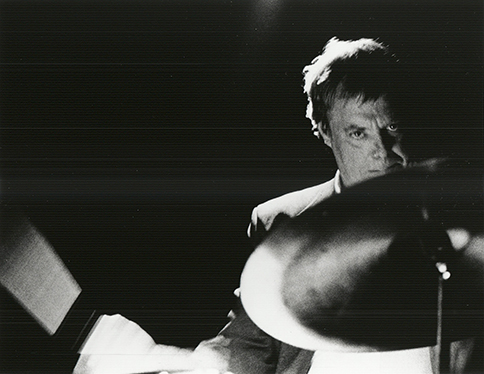 (photo by Berit Bolt)
(photo by Berit Bolt)
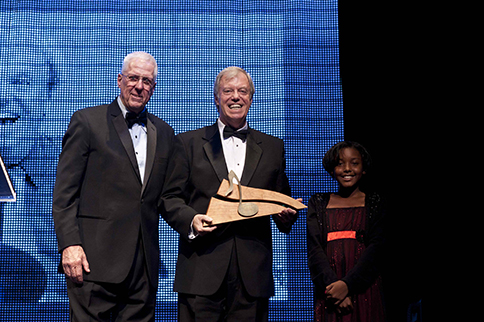 Longtime Good Morning America host David Hartman and Butch Miles (photo by Mike Keller)
Longtime Good Morning America host David Hartman and Butch Miles (photo by Mike Keller)
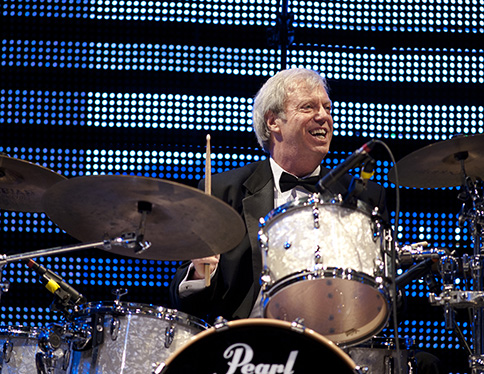 (photo by Mike Keller)
(photo by Mike Keller)
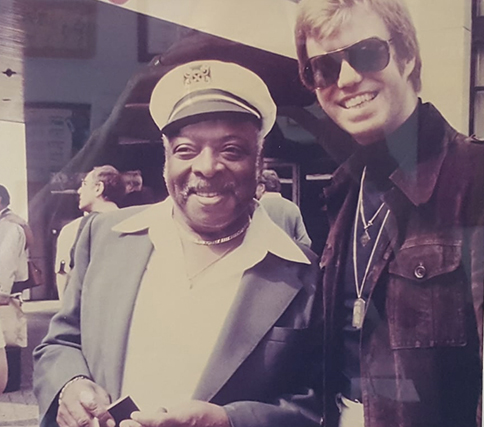 Count Basie and Butch Miles
Count Basie and Butch Miles
Inaugural Inductee George Crumb Passes at 92
George Crumb, widely heralded as one of the 20th Century’s most unique voices in classical music has passed away at the age of 92.
Crumb was born and raised in Charleston – on the site of the Culture Center Theater – and earned a Bachelor’s degree at The Mason College of Music (now the University of Charleston.)
Among his many honors and awards was a 1968 Pulitzer Prize for Music for his orchestral work “Echoes of Time and the River” and a Grammy Award for “Best Contemporary Composition” in 2001 for “Star-Child.”
While his music was sometimes jarring and almost always challenging, Crumb – who drew inspiration from the sounds he heard growing up in West Virginia – was charming with a sly and impish sense of humor.
Crumb’s father, George, was a clarinetist who played with the precursor of the West Virginia Symphony Orchestra. His mother, Vivian, was an accomplished cellist who played with various local ensembles.
As a child, Crumb transcribed music for his father and became a skilled calligrapher. Many of his scores are works of art in themselves, particularly 1973’s “Makrokosmos II” which is noted in the shape of a peace sign.
His son, David Crumb, is a successful composer and his daughter, Ann Crumb, who passed away in 2018, was a Broadway actress and opera singer who performed some of her father’s works.
One of Crumb’s signature pieces, “Black Angels,” was a favorite of David Bowie who stated that the original recording was one of his favorite albums of all time.
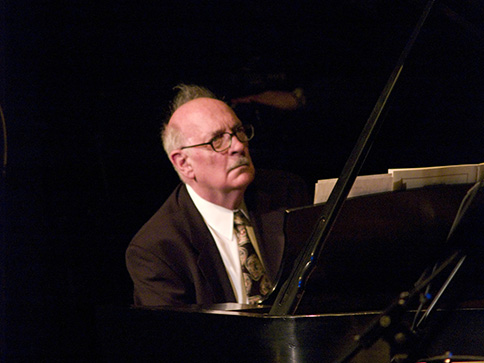
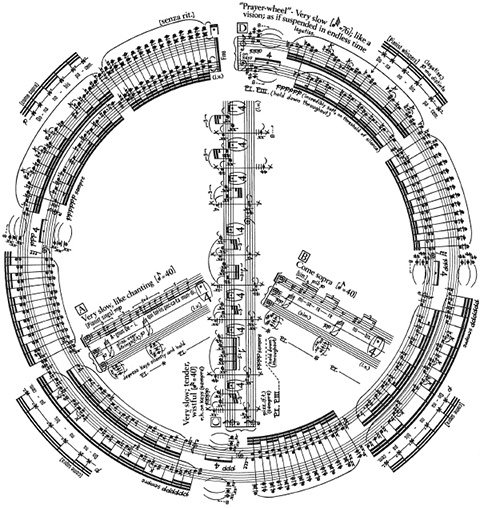
WV Museum of Music Opens
The West Virginia Music Hall of Fame’s newest project, The West Virginia Museum of Music, opened in early June in the former Books-A-Million store on the second floor of the Charleston Town Center. The project, funded by the West Virginia Humanities Council, takes a broad look at music from West Virginia and the tools used to create it.
The Museum kicked off with a gala Open House on June 12 that featured performances by 2015 WVMHoF inductee John “Some Kind of Wonderful” Ellison; a trio featuring 2015 WVMHoF inductee Bob Thompson, future inductee Vince Lewis, and longtime Charleston bassist Jim Martin; 2020 WVMHoF inductee Larry Groce; organist Randy Gilkey; and singer/songwriter Mike Pushkin.
With Phase 1 of the project nearly complete, visitors will have the opportunity to see an exhibit featuring the stunning, turn-of-the-century lithographs of music publisher and composer E.T. Paull; large format framed posters representing notable WV music events; vintage amplifiers and recording equipment; and six “In the Spotlight” sections featuring the instruments of West Virginia musicians.
The Museum will be open during mall hours on Friday, Saturday, and Sunday. Visitors are asked to wear a mask if you have not been vaccinated.
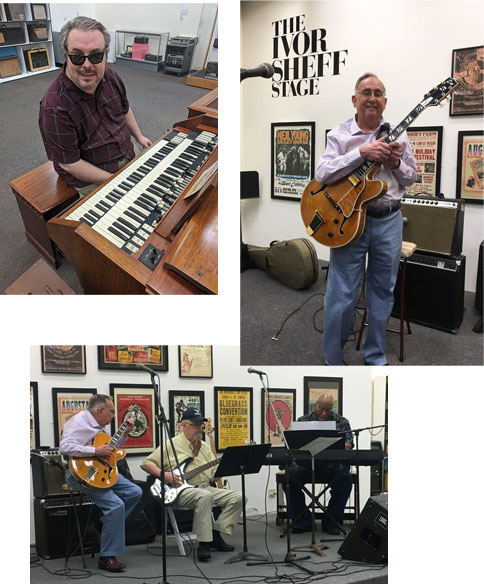
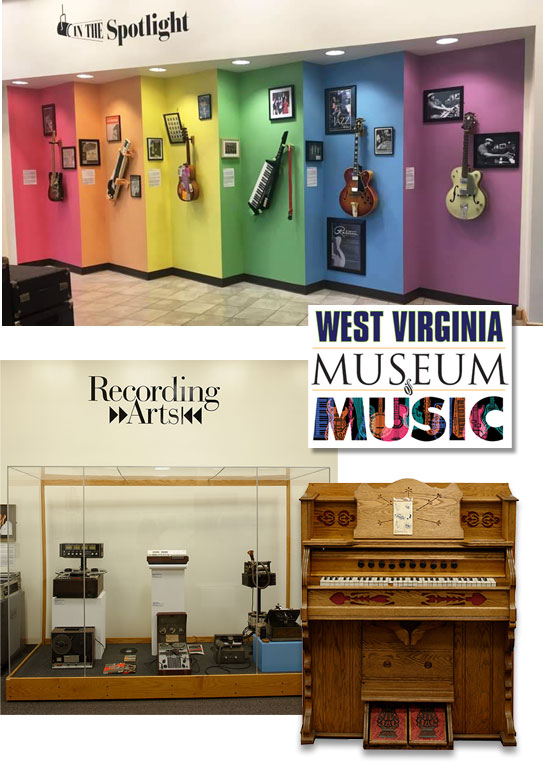
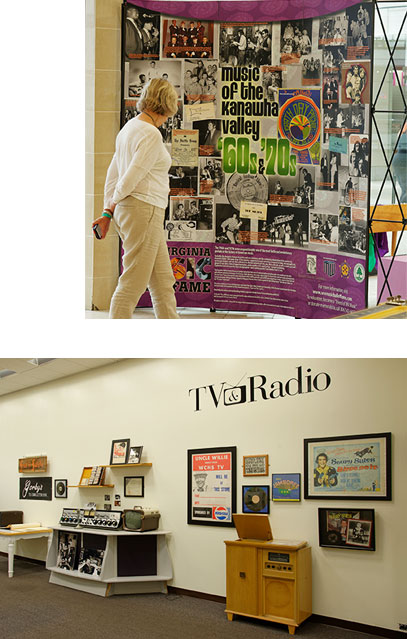
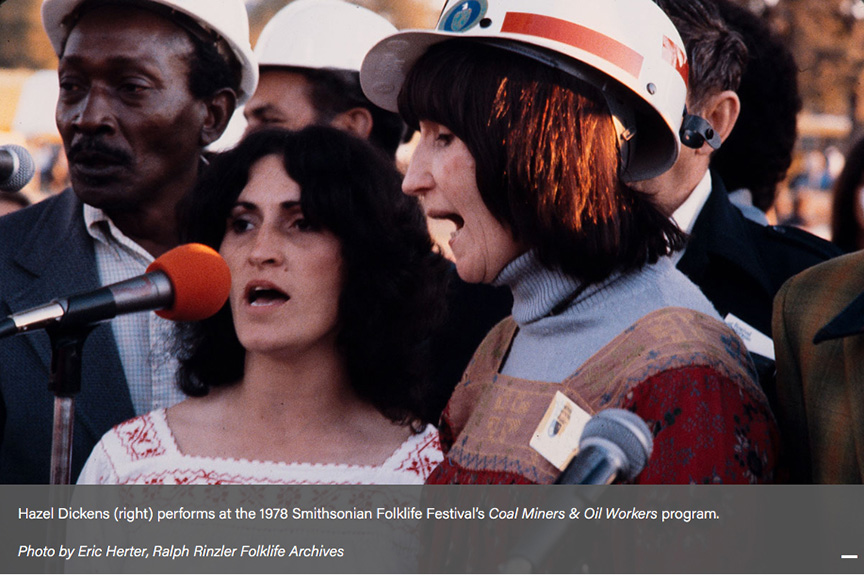
Folklife magazine, a publication of the Smithsonian Institution, featured a story about Inaugural Inductee Hazel Dickens and her tireless work ethic. The article was written by West Virginia state folklorist Emily Hilliard and was informed by archival interviews, writings, correspondence and performances by Dickens. Click here to read the article.
